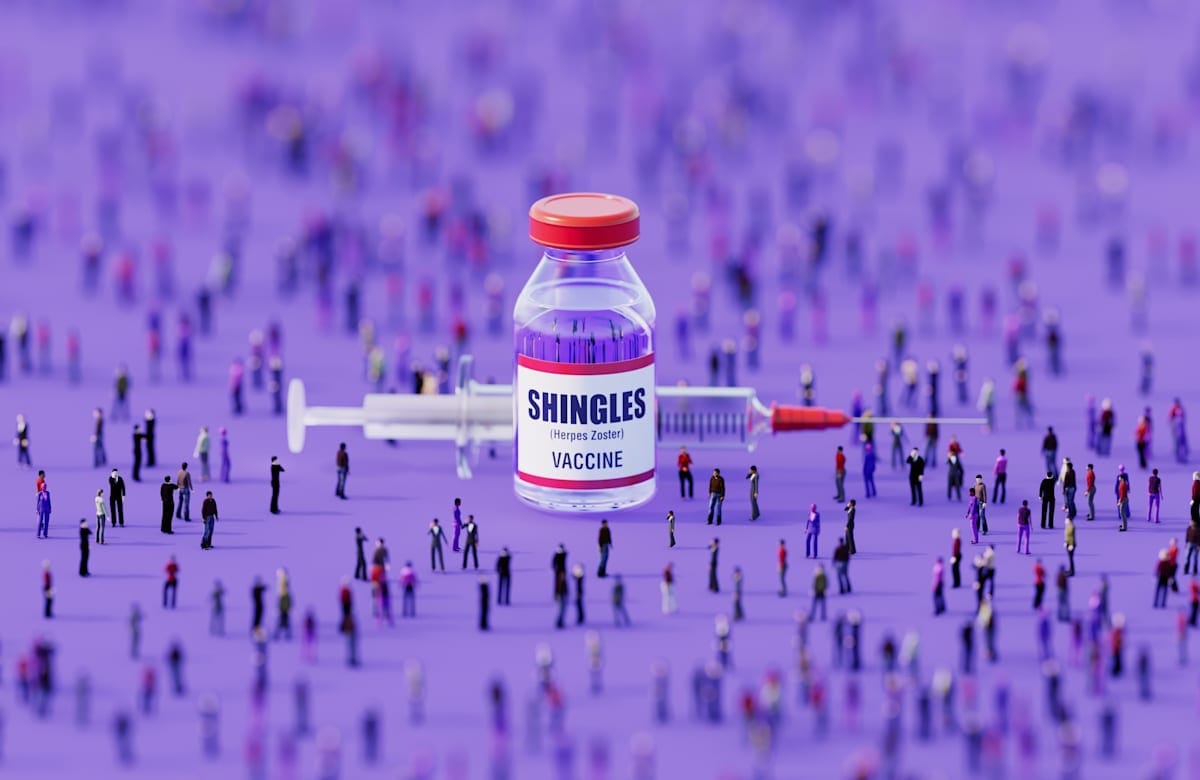
Vaccines stand as one of the most groundbreaking advancements in medical history. From eradicating smallpox to dramatically reducing cervical cancer and influenza burdens, their impact on global health is undeniable.
These triumphs are not merely scientific milestones; they’re testaments to the power of vaccine advocacy and the collective commitment to public health.
Effective vaccine programs rely on robust public education, addressing misinformation, and ensuring equitable access for all populations.
Overcoming vaccine hesitancy and promoting widespread immunisation are crucial for realising the full potential of vaccines to protect individuals and communities.
Emerging evidence suggests a new, potentially groundbreaking benefit – protection against dementia, a condition affecting 55 million people worldwide.
A recent study offers compelling data that a common shingles vaccine might play a surprising role in safeguarding cognitive function. This intriguing prospect warrants immediate attention and further investigation.
A new analysis of a vaccination program in Wales found that the shingles vaccine appeared to lower new dementia diagnoses by 20% — more than any other known intervention. #StanfordMedicinehttps://t.co/R2aeCKxjQf— Stanford Medicine (@StanfordMed) April 5, 2025
The Welsh vaccination program
A distinctive policy decision in Wales unintentionally created a valuable opportunity for observational research. Eligibility for the Zostavax shingles vaccine was determined by a strict birthdate cut-off – 2 September, 1933. Individuals born on or after this date qualified for vaccination beginning in 2013, while those born just before the cut off did not.
This unintentional natural experiment was seized upon by Geldsetzer and colleagues, who meticulously tracked 282,541 adults aged 71 to 88 over a seven-year period. Their findings were striking – vaccinated individuals exhibited a 20% reduction in the risk of developing dementia compared with their unvaccinated counterparts.
This relative risk reduction translates to a substantial 3.5% point drop in absolute risk. The benefit was even more pronounced among women, who constituted 54.6% of the study cohort (154,218 out of 282,541), approaching a 7% absolute risk reduction.
Further, the study confirmed the vaccine's primary efficacy, demonstrating a 37% reduction in shingles cases among the vaccinated group.
The ingenuity of leveraging a mere week’s difference in birth dates to isolate the vaccine’s effect provides a rare window into the potential cognitive benefits of a routine immunisation. The scale of the study also strengthens the findings, as the large sample population allows the data to avoid small-sample biases that can occur in more controlled studies.
Deciphering the protective mechanism
The question naturally arises: How could a shingles vaccine possibly stave off dementia?
The varicella-zoster virus (VZV), the causative agent of both chickenpox and shingles, is a critical piece of the puzzle. After an initial chickenpox infection, VZV lies dormant in nerve cells. Reactivation of the virus later in life manifests as shingles, often accompanied by intense pain and a characteristic rash.
However, the consequences of VZV reactivation may extend far beyond the localised symptoms of shingles.

Mounting evidence suggests VZV reactivation can trigger chronic inflammation in the brain, a process increasingly recognised as a key contributor to neurodegenerative diseases, including dementia.
Prior research has demonstrated a link between herpesvirus infections, including VZV, and the formation of amyloid plaques and neurofibrillary tangles, the pathological hallmarks of Alzheimer’s disease.
Zostavax, a live-attenuated vaccine, likely mitigates these inflammatory flare-ups, thereby reducing the inflammatory burden on the brain and potentially slowing the progression of neurodegeneration.
Another intriguing hypothesis involves the concept of “trained immunity”.
Vaccines are known to elicit specific immune responses targeted at the pathogen they’re designed to combat. However, recent studies have revealed that some vaccines can also induce broader, non-specific immune changes that enhance the overall resilience of the immune system.
This “trained immunity” could lessen the body's susceptibility to other infections and inflammatory stimuli, indirectly protecting brain function over time.
The observed difference in the vaccine’s effectiveness between men and women raises further questions about the underlying mechanisms.

Hormonal influences on immunity, particularly the role of oestrogen in modulating immune responses, may play a significant role. Oestrogen has been shown to have both protective and detrimental effects on the brain, and its interaction with the immune system is complex and warrants further investigation.
Vaccines as neuroprotective agents
The Welsh study doesn’t stand in isolation; it aligns with a growing body of evidence suggesting vaccines can offer unexpected benefits beyond their initial targets.
Observational studies have linked influenza vaccination to a 40% lower risk of Alzheimer’s disease over a four-year period.
Antiviral treatment for herpes simplex virus (HSV) infections has been associated with reduced dementia risk. Even the Bacillus Calmette-Guérin (BCG) vaccine, originally developed for tuberculosis, may slow the progression of Alzheimer’s disease.
These seemingly disparate findings point to a common thread – the modulation of the immune system can have profound effects on brain health.
The Zostavax findings reinforce this emerging paradigm, positioning the shingles vaccine as a potentially dual-purpose intervention – tackling shingles while simultaneously fortifying the mind against the ravages of dementia.

If these results are validated, it could elevate adult vaccination to a cornerstone of healthy aging strategies, particularly as dementia cases are projected to reach a staggering 153 million by 2050.
Vaccination as a proactive prevention strategy
Zostavax is not an experimental therapy; it’s a well-established vaccine with a proven safety profile, widely available, and relatively inexpensive.
A 20% reduction in dementia risk could spare countless families the devastating emotional toll of cognitive decline and alleviate the immense strain on overburdened healthcare systems.
For individuals over 70, particularly women, the message is clear – discuss this option with your physician. The potential benefits of protecting against shingles while simultaneously preserving mental clarity are too significant to ignore.
Public health authorities should seize this moment and launch proactive campaigns to educate the public about the potential cognitive benefits of the shingles vaccine.
Clear and concise messaging is essential: “One vaccine, two victories.”
Efforts to expand access to vaccination, particularly in low-income regions where dementia rates are rising rapidly and vaccination coverage lags behind, are critical. Subsidised vaccine doses, free vaccination clinics, and mobile outreach programs could help bridge the access gap and ensure everyone has the opportunity to benefit from this potentially transformative intervention.
Vaccination should not be viewed as merely a personal choice; it’s a collective strategy to bolster societal resilience against one of the greatest health challenges of our time. By prioritising vaccination, we can protect not only individuals, but also the fabric of our communities.
Addressing lingering uncertainties
While the Welsh study provides compelling evidence, caution remains essential. The study’s design, comparing nearly identical groups separated by a narrow birthdate cut-off, minimises bias more effectively than typical observational research. However, it falls short of the gold standard of a randomised controlled trial (RCT).
Could subtle differences in lifestyle factors, healthcare access, or other unmeasured variables have influenced the outcomes?
The researchers addressed this concern by carefully examining available data and finding no evidence of such disparities, but the possibility cannot be entirely ruled out.
Another important consideration is the fact that Zostavax, a live-attenuated vaccine, is now largely being replaced by Shingrix, a newer recombinant vaccine that boasts significantly higher efficacy (97%) against shingles.
Whether Shingrix offers similar dementia protection remains unknown. Given that Shingrix lacks the live viral component of Zostavax, it’s possible that the mechanisms of action and the resulting cognitive benefits may differ.
Further, the results of the Welsh study, conducted in an older, predominantly white population, may not be generalisable to younger cohorts or diverse populations. Additional research is needed to determine whether the protective effects of the shingles vaccine extend to other groups.
A clear call to action
The Welsh study is more than just a set of data points; it’s a clarion call to action. Vaccines, already celebrated for their success in preventing infectious diseases, may hold the key to unlocking a new era of cognitive health.
Policymakers must prioritise funding for further research to confirm these findings and elucidate the underlying mechanisms. Healthcare providers must ensure the shingles vaccine reaches those who are most likely to benefit. Individuals must embrace the opportunity to protect their cognitive future.
The evidence suggests that Zostavax, and potentially Shingrix, could delay the onset of dementia, offering a lifeline to millions as cases continue to surge globally.
This is not about waiting for absolute certainty, it’s about acting on a promising lead with the potential to transform lives.
For scientists, it’s a mandate to conduct rigorous research. For the public, it’s an opportunity to safeguard what matters most – a clear and vibrant mind.
Let’s not let this possibility slip away. Vaccination today could mean a brighter, more cognitively healthy tomorrow.





